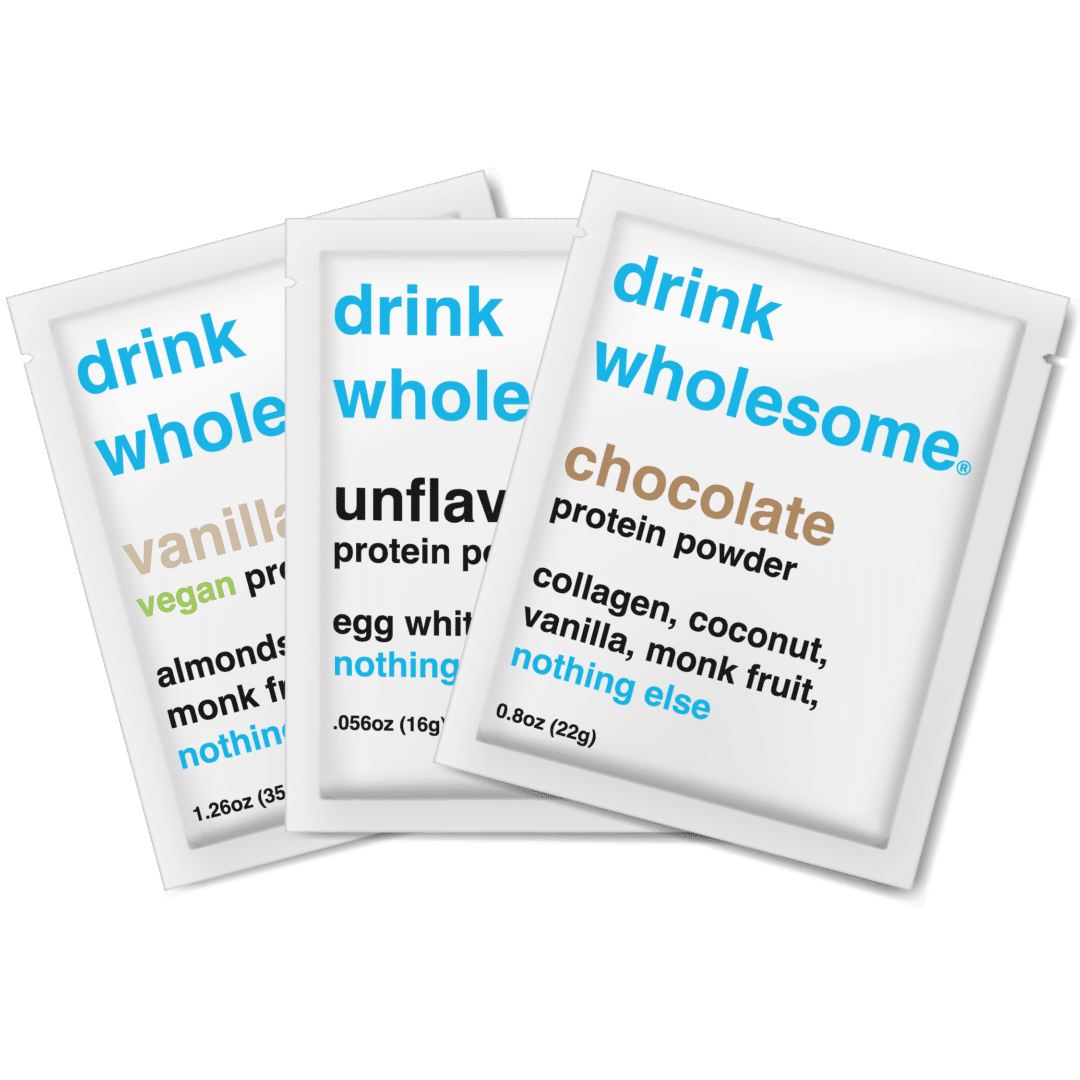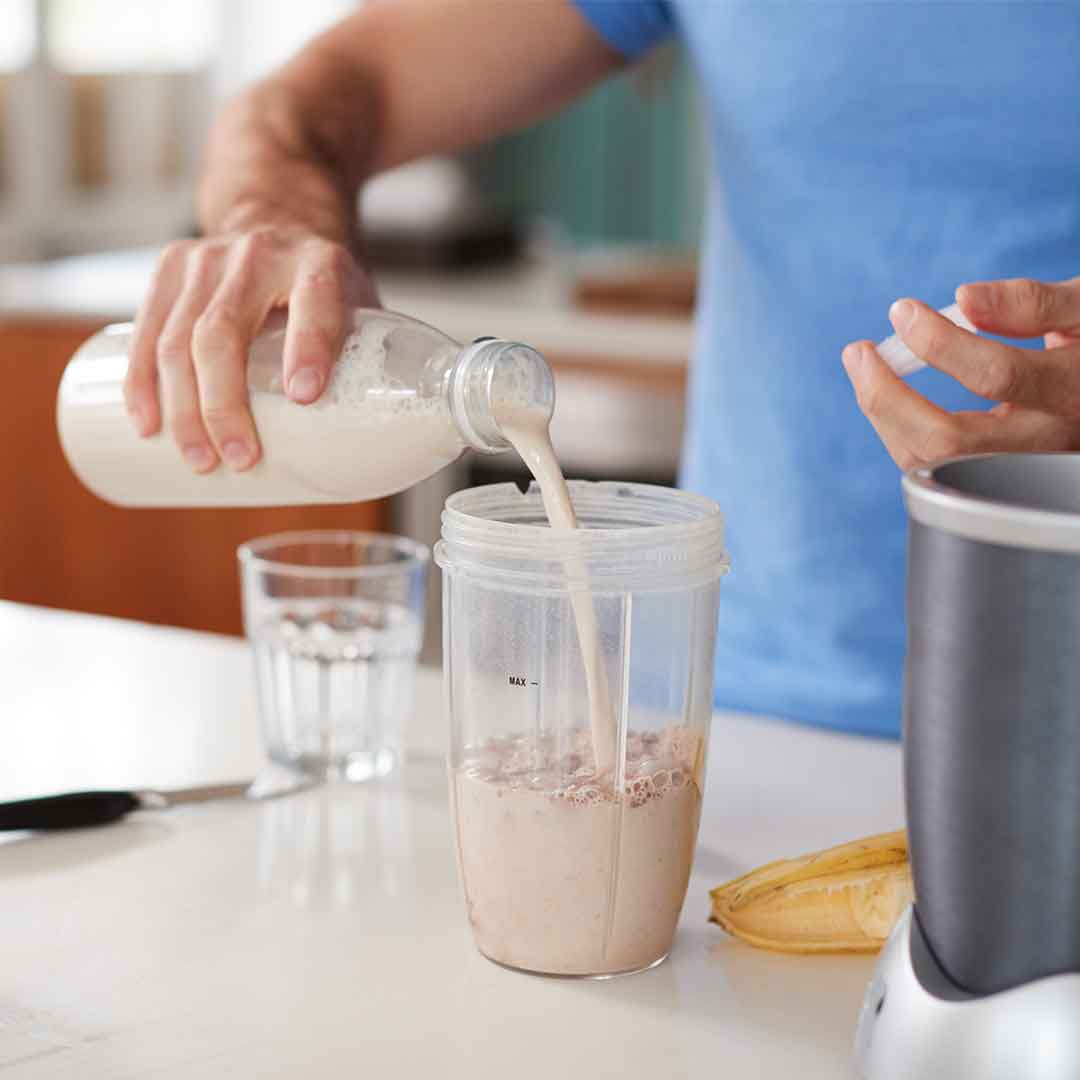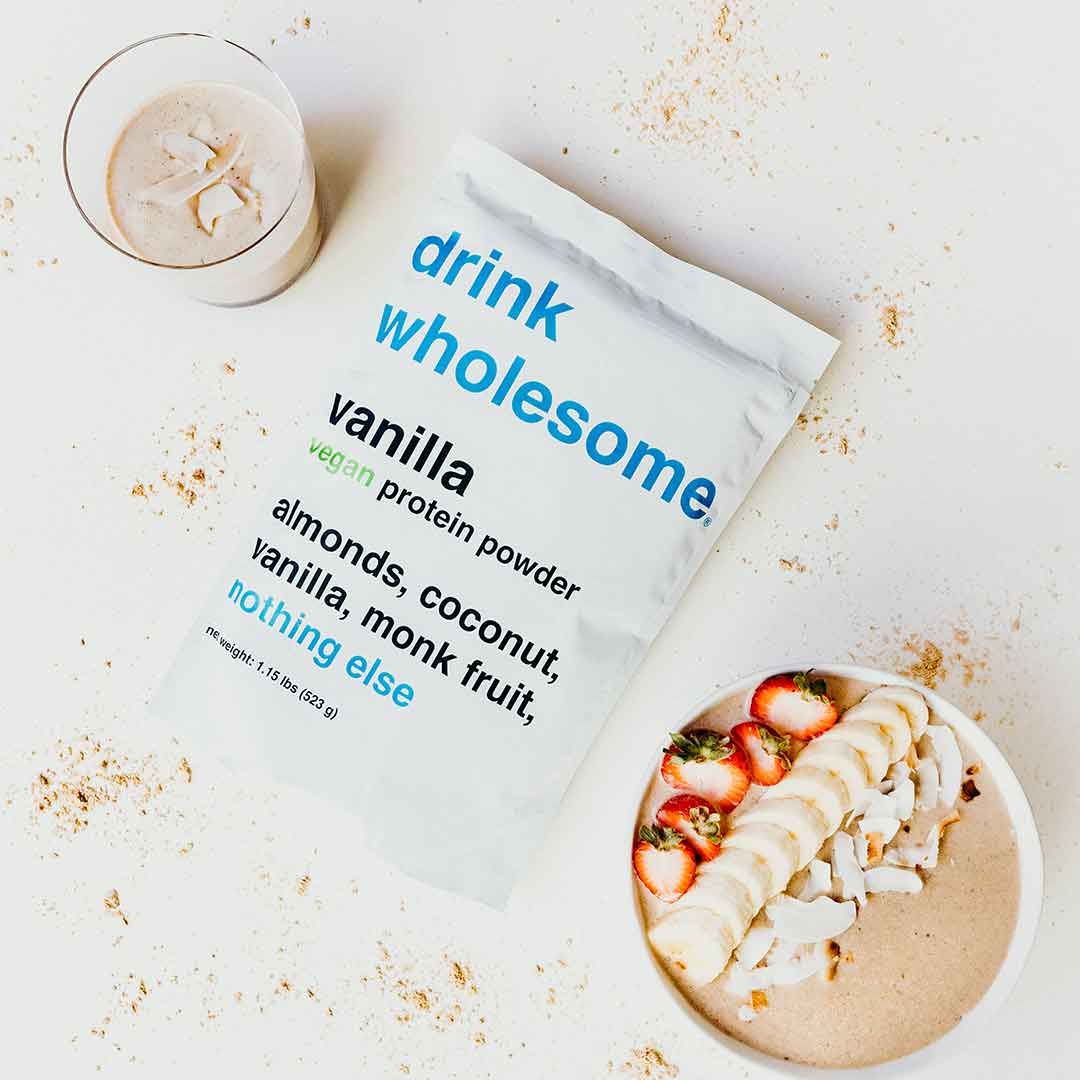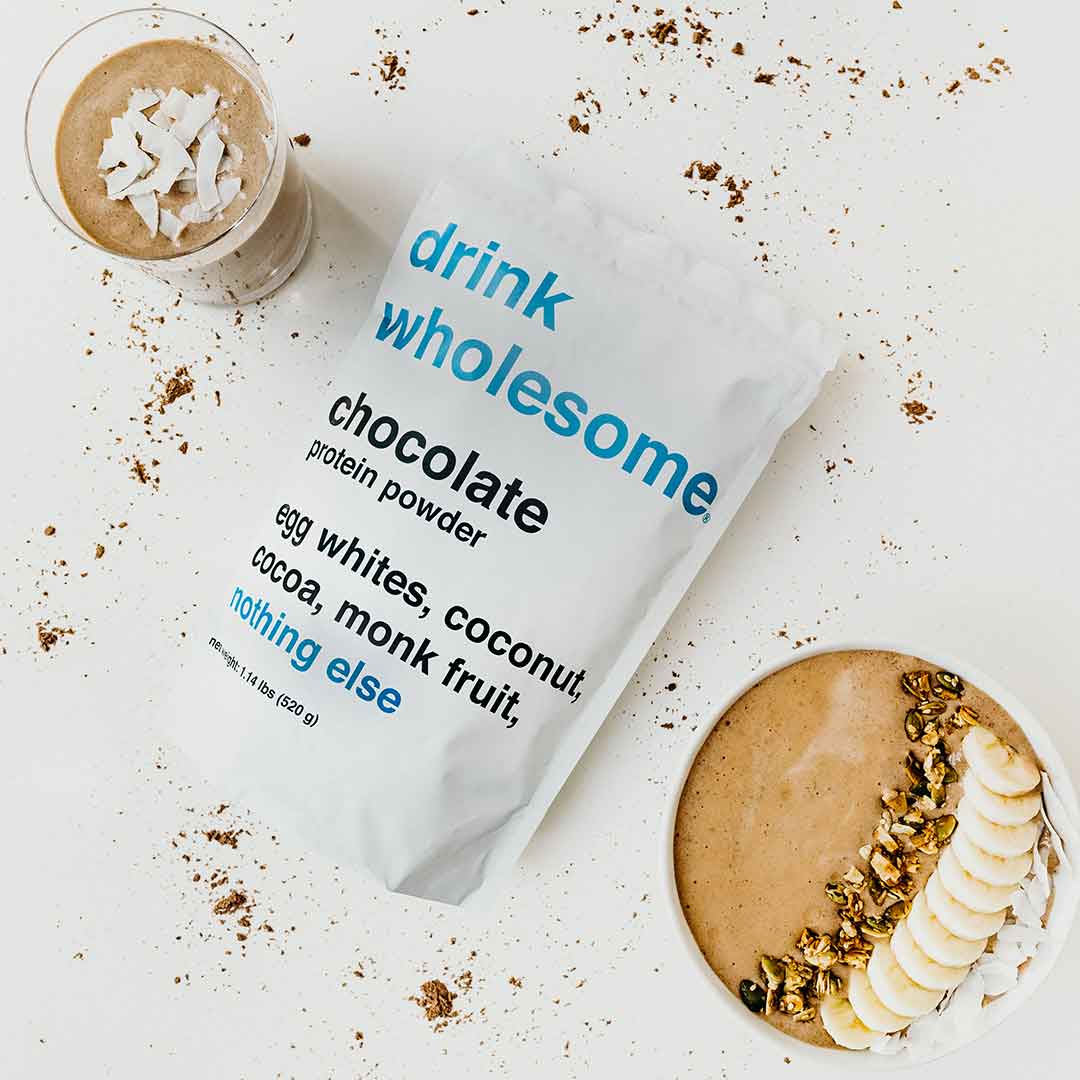Another reason why we make the best protein powder for COPD patients is that we do not use dairy-based proteins. On the contrary, many protein powders utilize use and casein proteins, which are byproducts of cheese and yogurt manufacturing. Whey and casein have gained notoriety for causing digestive issues, particularly among individuals with lactose intolerance and irritable bowel syndrome (IBS).
People with lactose intolerance and IBS struggle to fully digest lactose, the sugar in dairy products. As previously mentioned, when undigested food sits in your gut, it feeds your hungry gut bacteria. Subsequently, these bacteria produce gas, resulting in uncomfortable side effects.
A final reason why we make the best protein powder for COPD patients is our use of real food protein sources, not protein concentrates and isolates. Concentrates and isolates, discreetly labeled as “pea protein” or “whey protein,” rather than as “peas” or “whey,” are stripped-down versions of real foods. They contain protein and virtually nothing else.
Producing protein concentrates and isolates involves extensive mechanical and chemical manipulation. In some cases, manufacturers resort to chemical solvents like hexane to extract the protein from its natural source. The final product, as you might imagine, looks nothing like real food.
Your digestive system has evolved to handle real foods, not artificially engineered imitations. Putting anything other than real food in your gut can lead to adverse side effects. Although the long-term effects of consuming processed protein isolates are not yet fully understood, emerging research suggests that they can disrupt the delicate balance of your gut microbiota, potentially causing irreparable harm to your gut microbiome.
Beyond food digestion, your gut performs a multitude of functions. It serves as a protective barrier against pathogens, contributes to the education of your immune system, and significantly influences various physiological processes. Consequently, an imbalanced gut microbiome has been associated with the development of numerous chronic diseases. As a precautionary measure, it is advisable to steer clear of protein powders that contain protein concentrates and isolates.












